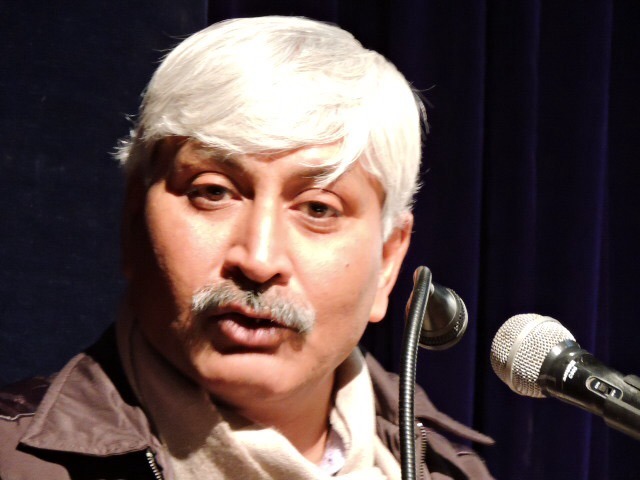TCN News
Over 1300 professionals have signed an open letter condemning interrogation of Prof Apoorvanand by the Delhi Police on August 3 in connection with Delhi pogrom.
A well-known writer, public speaker and Professor of Hindi at Delhi University, Prof Apoorvanand was called by the Special Branch of Delhi Police on August 3 where he was questioned for 5 hours about the February northeast Delhi pogrom. Reportedly, the police have seized his phone. The letter mentions that Prof Apoorvanand has been summoned under section 43F of UAPA, 19 sections of the IPC, two sections each of the Prevention of Damage of Public Property (PDPP) Act, two sections of the Arms Act, and under four different sections of the UAPA. The open letter seeks to oppose the interrogation of several other activists and their intimidation by the BJP government.
The signatories of this letter include renowned academicians, journalists, filmmakers, lawyers, activists and many known professionals from across the country who have raised alarm against a time like this “when authorities feel free to haul in the nation’s leading public voices to police stations, merely because they speak against the policies and ideology of the ruling government.” It discusses how the Indian democracy faces “its most serious crisis since independence, far more critical than Indira Gandhi’s Emergency 45 years ago,” indicating that as concerned citizens who love and value democracy, “must speak out before it is too late and all voices of freedom are silenced forever.”
“It is not unusual, or even improper, for the police to ask citizens to cooperate in the crime they are investigating; what matters is the context and manner in which this is happening,” said the statement. It went on to sound danger against the increasing witch hunt of dozens of scholars and activists in the past two months under the pandemic lockdown, stating that “this is not a normal enquiry or police business…but a clear strategy by the Delhi Police to present protests against the CAA as a conspiracy to plan and stage the communal riots that shook Delhi in late February.” The signatories accuse the Centre of constructing “a larger design to shut down all dissent in the country so that no one dares question authority.”
Over the past several months, students, activists, writers, artists, journalists and other commoners who had participated in the anti-CAA protests have been targeted for repeated inquiries, and many have been arrested. Under the omnibus FIR 59 of 2020 alone, more than 17 arrests have taken place under the UAPA while over two hundred have been arrested under sections of the IPC. In relation to this, the letter states that “the intense activity of the Delhi Police in pursuing this line of inquiry is in marked contrast to their inaction in investigating leaders associated with the BJP who were seen inciting violence on public television.” The pattern is identical to that in the Bhima-Koregaon case, the letter continues, where the BJP government is launching a nationwide hunt against alleged “Urban Naxals”, while those who were so clearly responsible for instigating riots after the Elgar Parishad meeting in January 2017 are being allowed to go scot-free.
The signatories have reiterated that the crusade to silence dissent has been gathering momentum over the past two years with “public figures like Prof Apoorvanand, and many others, known for their unwavering stand against violence and the politics of hate, are being targeted for their dissenting views.” All of this is being done under the “absurd pretext” that these were the “masterminds” who instigated the Delhi riots. By attempting to silence people like this, the government intends a “chilling effect on all democratic dissent and discourse.” It resonated that such “systematic harassment of voices critical of the government” and the blatant misuse of the law and the state apparatus be stopped immediately.
“If we fail to protest the muzzling of our democracy today, there may be no democracy left tomorrow,” the letter concluded. Expressing deep concerns about the rising clampdown of expression in the Indian democracy, the letter has urgently requested citizens “to overcome all fear and stand up for each individual’s right to disagree and dissent.” It has also demanded groups, organizations and individuals “to resist the ongoing attempt of BJP to turn India into a police state where all dissent is criminalized under the most draconian laws.”


